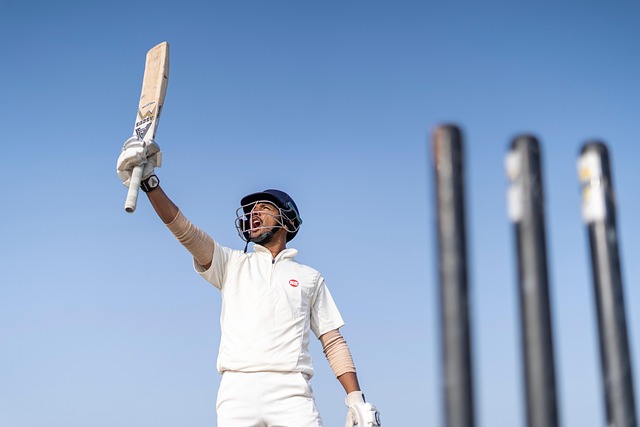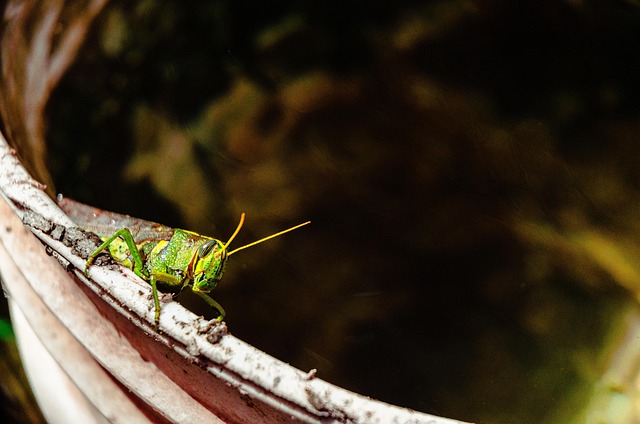England cricket's history since the 18th century, marked by county matches and team formation, has evolved into global attractions. Governing bodies set rules for player welfare, fostering skill development and community unity. The England cricket team's competitive encounters with nations like Australia and India leave an indelible mark, inspiring fans and players worldwide. Historical records, including match scores and player performances, preserve the sport's cultural significance and drive modern coaching strategies.
“Uncover the rich history of England’s first-class cricket matches, dating back centuries. From its early beginnings on village greens to becoming a global sporting phenomenon, this article explores the evolution of England cricket. Discover the formative years through detailed match records and iconic performances that shaped the game. We’ll delve into key opponents, including historic series against other nations, and examine how historical documents preserve the legacy of these matches. Join us as we navigate the fascinating past of the England cricket team.”
- Early Cricket Matches in England: A Historical Overview
- The Evolution of First Class Cricket
- Notable Opponents: England vs Other Nations
- Key Figures and Iconic Performances
- Documentation and Preservation of Historical Records
Early Cricket Matches in England: A Historical Overview

The history of England’s first-class cricket matches stretches back to the 18th century, providing a fascinating glimpse into the evolution of the sport. Early records reveal that cricket was initially played in rural areas and towns across England, with informal games between local communities and aristocratic families. These early matches laid the foundation for what would become a rich sporting tradition.
Over time, as the game gained popularity, structured competitions emerged. The first recorded county match took place in 1744 between Kent and Surrey, setting a precedent for inter-county cricket. This was followed by the formation of the England cricket team, which represented the nation in international matches. The cricket governing bodies in England, such as the MCC (Marylebone Cricket Club), played a pivotal role in establishing standardized rules and regulations, ensuring the sport’s growth and popularity. These early developments in cricket administration also laid the groundwork for effective cricket injuries prevention tips and rehabilitation processes, recognizing the importance of player welfare even in these nascent stages of the game. If you’re interested in learning more about historical cricket crowd behavior, give us a call at cricket crowd behavior study.
The Evolution of First Class Cricket

First class cricket in England has a rich history dating back to the 18th century, evolving from informal matches between local sides into highly competitive fixtures that attract global attention today. These historical records not only showcase the development of the sport but also highlight its deep-rooted cultural significance within the country. Over time, the game’s structure and rules have undergone significant changes, reflecting advancements in sports science and player preferences.
The early days saw the emergence of key players who laid the foundation for England cricket team excellence. These pioneers played a crucial role in shaping match day preparation strategies that remain relevant even today. As we delve into the past, it becomes evident that cricket has been an integral part of English society, with records indicating regular matches between county clubs and occasional international encounters. The sport’s enduring appeal lies not only in its statistical interpretation guide but also in its ability to unite communities and inspire future generations of players, as demonstrated by the success of the current key players of England cricket team. To learn more and enhance your skills, consider reaching out to cricket coaching for advanced players.
Notable Opponents: England vs Other Nations

The England cricket team has a storied history of competing against notable opponents on home soil and abroad, leaving an indelible mark on the sport’s global landscape. Their encounters with other nations have been pivotal moments in both international cricket and the development of the game itself. Over the years, these matches have not only showcased the skills of England’s cricketers but also highlighted the cricket social impact in England, fostering a passionate following among fans across generations.
One cannot discuss these historical records without acknowledging the significant cricket marketing and sponsorship value these fixtures bring. High-profile series against rivals like Australia, India, and Pakistan attract global attention, generating substantial revenue through broadcasting rights, merchandise sales, and stadium attendance. Moreover, these encounters often inspire young players to take up the sport, leading many to pursue advanced coaching programs, such as those offered by reputable cricket academies, even encouraging them to visit us at cricket skills assessment methods anytime for personalized guidance.
Key Figures and Iconic Performances

The historical records of England’s first-class cricket matches are a testament to the sport’s deep-rootedness in the country’s culture and history. Iconic performances by key figures have not only shaped the England cricket team’s legacy but also left an indelible mark on the game itself. From the pioneering days of W.G. Grace, often regarded as one of the greatest batsmen in cricketing history, to modern-day heroes like Joe Root, who led the team to numerous victories, these players have elevated the sport.
In terms of historical impact, cricket has played a significant role in fostering social cohesion and mental toughness among English athletes. The sport’s intricate strategies and intense competition require not just physical prowess but also psychological resilience. Over time, the England cricket team has embraced innovative techniques for cricket injury rehabilitation processes, ensuring players return to peak condition swiftly. Moreover, cricket’s global reach and social impact in England have inspired countless individuals to take up the game, with many finding their own unique paths to success, much like those who prepare for a match day with meticulous strategies and the right mindset, as highlighted by their presence at our cricket match-day preparation sessions.
Documentation and Preservation of Historical Records

The documentation and preservation of historical records in England’s first-class cricket matches are a testament to the sport’s rich heritage and enduring popularity. The England cricket team’s archives, meticulously maintained over centuries, offer a fascinating glimpse into the game’s evolution. These records not only document match scores and player performances but also capture the spirit and challenges faced by both players and fans alike. Through detailed scorecards, newspaper clippings, and personal accounts, the history of English cricket comes alive, reflecting societal changes and the sport’s growing global influence.
Cricket mental toughness techniques, once little more than whispers in the changing rooms, are now a crucial aspect of modern coaching, thanks to enhanced record-keeping. The same can be said for cricket fan engagement strategies and youth training regimens—all have been refined over time through meticulous documentation. Visit us at cricket sports science advancements anytime to explore these developments further and understand how the game continues to evolve while preserving its historical records.
England’s first-class cricket history, meticulously documented and preserved, offers a captivating glimpse into the sport’s evolution. From early matches to iconic performances and international rivalries, these records highlight the England cricket team’s rich heritage. Through dedicated efforts at documentation, fans and scholars alike can continue to explore and appreciate the game’s depth, ensuring that its vibrant tapestry remains woven with historical threads for generations to come.
